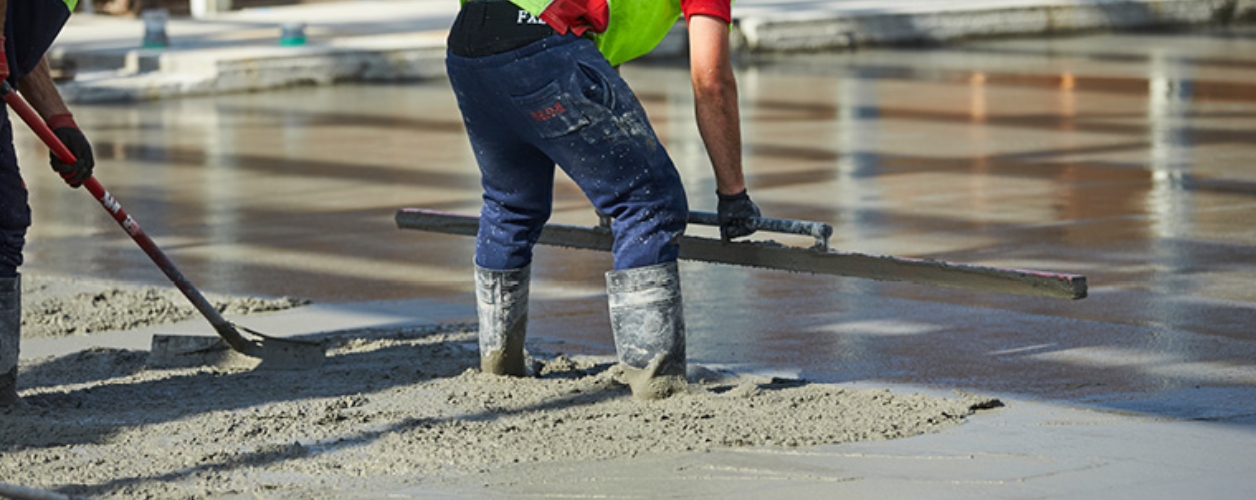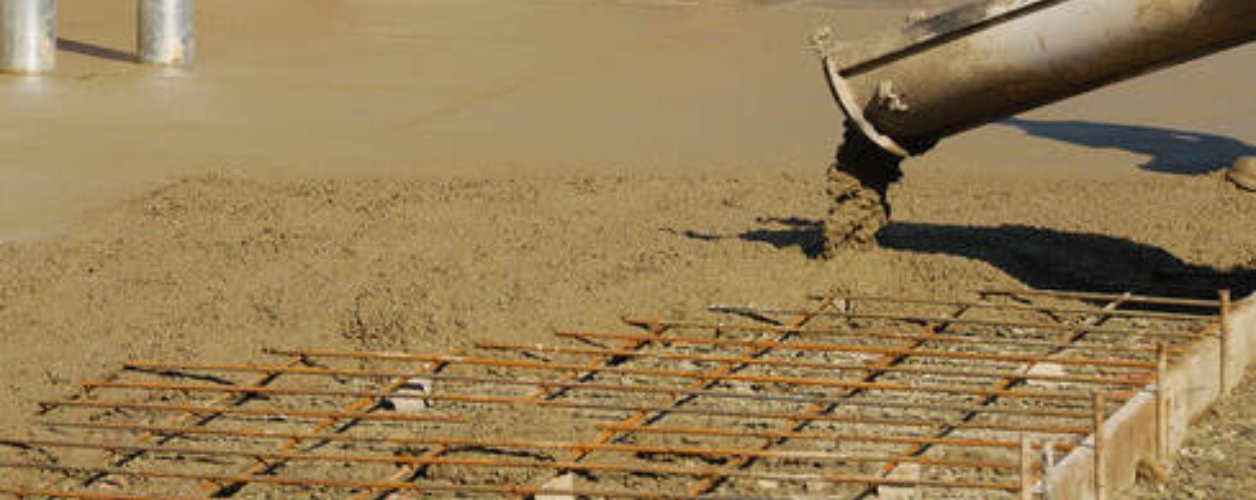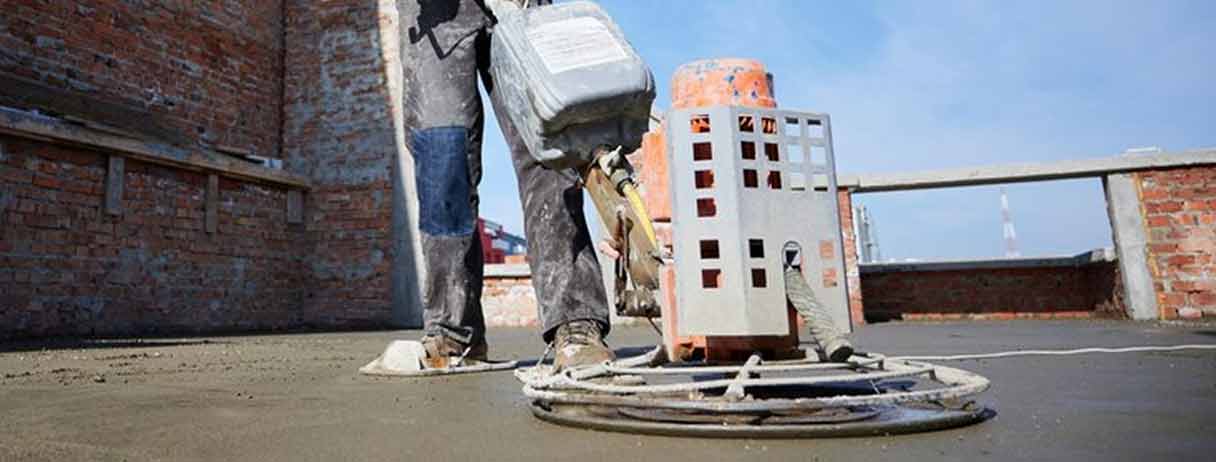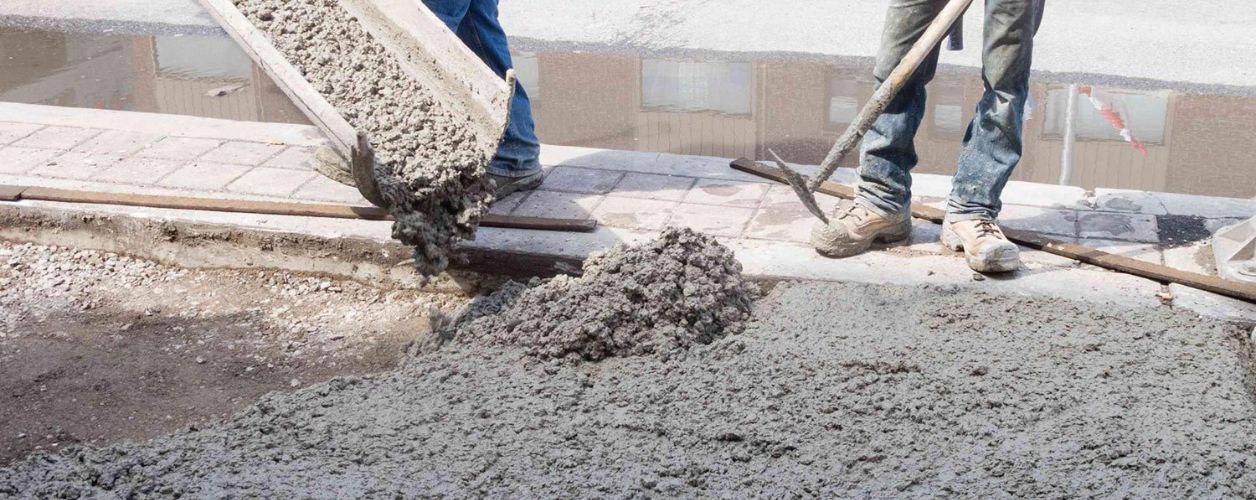Concreting Pricing in Australia For Different Uses
How much does concrete cost for different projects? Whether you need to construct a pathway, concrete slab, or pavement, it is ideal to know these costs. So, let’s check what you should expect.
Concrete Driveway
The price of the concrete driveway can vary. You can expect it from $4 to $10 per square foot, based on many aspects like thickness, finish, & location. Lower-end basic driveways have a straightforward broom finish, but more expensive driveways might have ornamental features like stamped concrete.
Concrete Slab
Concrete slabs, which are frequently used for patios, sheds, and foundations, typically cost $5 to $12 per square foot. It may depend on the thickness, the need for excavation, and any reinforcing, like rebar. The upper limit of the range may be reached by large, reinforced slabs.
Cost Of Concrete Pools
The pricing range for a concrete pool usually ranges from $30,000 to $60,000, depending on the features such as waterfalls and steps, size, and form. The typical cost per square foot varies between $70 and $100 based on the materials and complexity of the design. To save money, you may want to know the cement truck cost. Getting material in bulk will be easy for you.
Concrete Pathway Cost
The average cost of a concrete sidewalk is $6 to $10 per square foot. The path's width and length, surface polish, and the addition of ornamental elements like stamped or coloured motifs all affect the price.
Concrete Framework Cost
Concrete formwork, or the makeshift buildings used to shape poured concrete, can be purchased for $2 to $8 per square foot. A few of the variables are the intricacy of the design, the kind of material utilised for the form, and the availability of reusable forms.
Concrete Foundation Costs
The cost of a concrete foundation could vary from $5,000 to $15,000 based on the size, kind (basement, crawl space, or slab), and soil circumstances. Generally speaking, the concrete cost per m2 ranges from $5 to $15, with more expensive, larger, and more intricate foundations.
Cost of Reinforcing Concrete
The cost of your project will increase by $1 to $3 concrete cost per m2 if you reinforce the concrete with rebar or mesh. This reinforcement enhances the concrete's longevity and structural integrity, especially for slabs, driveways, and load-bearing buildings.
Cost of Concrete Paving
The average cost of concrete pavement is $8–$12 per square foot. Surface finishing, labour, and supplies are all included in this.
Paving can be used for patios, walks, and driveways. Stamping and other decorative finishing raise the cost of the material.
Concrete Resurfacing
The cost of concrete resurfacing can vary from $3 to $7 per square foot. It may depend on the sort of damage that needs to be repaired and whether decorative elements like colouring & texturing are involved. Resurfacing is an affordable solution to revitalise worn-out concrete surfaces.
Cost of Concrete Sealing
Depending on the size of the area and the type of sealer used, sealing concrete can cost anywhere from $1 to $3 per square foot. Concrete's lifespan is increased by sealing it against stains, moisture, and wear and tear.
Cost of Concrete Patio
The average cost of a concrete patio is between $6 and $15 per square foot; more expensive patios have more elaborate designs, while simpler patios are more affordable. Custom finishes and forms will raise the final pricing.
Concrete Cutting
The cost of cutting concrete varies from $2 to $8 per linear foot, depending on the depth and length of the cuts. Higher prices could be the result of more intricate cuts or heavier concrete slabs.
Cost of Concrete Grinding
Smoothing surfaces or getting them ready for finishing is done with concrete grinding. Depending on the amount of grinding that needs to be done and the size of the surface being worked on, the price typically ranges from $3 to $12 concrete cost per m2.
Concrete Line Pumping
The pumping concrete lines range from $5 to $10 per cubic metre of concrete. The cost of this service varies depending on the project's complexity and the length of the hose. It may involve pumping concrete through a hose to difficult-to-reach locations,
Cost of Concrete Boom Pumping
Larger, high-volume projects often use concrete boom pumping, and concrete backyard costs can be different. This typically costs $15 to $30 per cubic yard, depending on the site's accessibility, height, and distance.
Cost of Concrete Removal
Depending on the thickness of the concrete, the method of demolition needed (machine or hand), and the disposal of the debris, the cost of removing concrete can vary. You can expect its prices to range from $2 to $6 per square foot.
Garden Shed Concrete Slab Cost
The average cost of a concrete front yard or garden shed slab is between $4 and $8 per square foot. The size of the shed, the slab's thickness, and whether or not the ground needs to be reinforced or prepared all affect the final cost.
Water Tank Concrete Slabs
Water tank concrete slabs typically cost between $5 and $10 per square foot. The size of the tank and the amount of reinforcing required to maintain the weight of the tank affect the prices. Slabs that are properly reinforced guarantee the longevity and security of the building.
Do Concreting Projects Need Council Permits?
Certainly, depending on the nature and extent of the project, council permissions are frequently needed for concreting projects. With permits, you may be guaranteed that the work conforms to safety requirements, zoning laws, and council building ordinances. In the following situations, permissions might be required:
Pathways and driveways
Concrete driveways, sidewalks, and any other construction that affects public infrastructure or encroaches on a street or sidewalk requires permission from numerous local council authorities. These rules guarantee appropriate drainage, safety for pedestrians, and respect for property lines.
Foundational Structures
Because of the potential structural and safety risks, permits are usually needed for concrete foundations for big structures such as sheds or houses. For this, you should know the concrete path around the house costs. The foundation's compliance with engineering and stability criteria is ensured by the permit process, particularly in regions vulnerable to soil movement or flooding.
Extensive remodelling or additions
Building permits are typically required if concreting is part of a larger rehabilitation project, such as constructing a garage or expanding a house. This can ensure structural integrity and compliance with local construction codes.
Regulations Concerning the Environment
Strict environmental laws exist in some places regarding drainage and runoff, particularly when it comes to large-scale concreting. Ensuring that the project complies with stormwater management regulations and permits helps to avoid flooding or water contamination.
The Repercussions of Not Having Permits
Not obtaining the required permits may lead to fines, having to redo the work, or project delays. Unauthorised work occasionally has an impact on a property's worth or potential for sale. Before beginning a concrete project, it's imperative to confirm with your local council what the precise criteria are for your area.
Factors Affecting The Concreting Costs
- Raw material: The material you choose for concrete will directly impact the cost. Some of the main components of concrete are cement, aggregates (such as sand and gravel), and water.
- Location: The location, the availability of materials, the condition of the local market, and the cost of transportation all affect the price of concrete. These variables will affect the final cost of concrete projects. The average concreting cost per m3 differs in Melbourne, Sydney, and Brisbane.
- Size of project: Your project’s size matters. This is measured in square metre or cubic metre, and this is how you can determine the amount of concrete you need for your project.
- Concrete supplier costs: The costs of concrete suppliers vary depending on the amount of pre-mixed concrete supplied.
- Concrete removal: If it is necessary to remove old or damaged concrete before pouring new concrete, you have to pay more for your concrete projects.
How To Use the Concrete Cost Calculator To Estimate Prices
A concrete cost calculator is a helpful resource when you need to know how much does concreting costs. It provides a quick and precise method of budgeting for concreting projects by determining the total cost of concrete per m3 of the work.
Important parameters like the area size (square footage), the thickness of the concrete, and any other needs like ornamental finishes or reinforcement can all be entered by users. Based on these selections, the calculator offers a breakdown of the concrete m2 prices for materials, labour, and the entire project.
Making decisions is made easier when you use a concrete cost calculator. It lets you compare decorative and conventional concrete options and decide whether enhancements like reinforced concrete are within your means.
Cost vs. Quality - When Should You Invest in Higher-End Concrete?
To ensure long-term durability and budgetary efficiency, cost and quality must be carefully balanced during the construction project planning process. You can get the information about how much does concreting costs.
Although ordinary concrete works well in some situations, there are other cases where the project's particular requirements warrant spending more money on more expensive concrete.
Importance of Lower-Cost Concrete
Lower-cost concrete is ideal for projects where strong loads, environmental stresses, or extreme lifespans are not necessary. It is ideal for slabs that are not meant to support weight (such as patios or garden paths); locations with little traffic where durability is not as important; and temporary constructions that don't need to be very strong or long-lasting.
Importance of Higher-End Concrete
More expensive concrete has better strength, resilience to environmental changes, durability, and frequently aesthetic variety.
Purchasing high-quality concrete improves structural integrity, lowers long-term maintenance costs, and assures the longevity of the building.
Examples Of Construction Projects For High Investment
Heavy Traffic Driveways or Business Parking Lots
Stronger concrete with reinforcement is needed for driveways that must handle big vehicles like trucks or commercial parking lots that see a lot of traffic. This guarantees that the surface won't break easily or soon decay.
High-end concrete has advantages such as higher durability, enhanced compressive strength, and resistance to wear and cracking.
Large Structure Foundation Work
Any structure's overall stability depends on its foundation. Using high-grade concrete guarantees that the foundation can withstand the weight and is suitable for large buildings. It could be better in areas with poor soil conditions or structures that are prone to settling and resisting shifting.
Better strength to support large structures, enhanced moisture resistance, and durability. This lowers the chance of structural failures, which is an advantage of higher-end concrete.
Exquisite Architectural Concrete Coatings
For visible surfaces like polished floors, walls, or specially stamped patios, decorative concrete needs a mix that can withstand precise finishing techniques like grinding and polishing without losing strength.
Smoother surfaces, the capacity to support elaborate designs, and greater wear resistance for high-traffic areas all contribute to improved visual appeal.
Construction of Waterfront and Marine Structures
Higher-quality concrete is required in locations like docks, piers, or coastal constructions that are exposed to seawater or severe weather.
This can prevent corrosion, cracking, and deterioration. Higher-end concrete has the advantage of being resistant to chemicals, salt, and moisture. It will help build a structure's lifespan and save maintenance expenses.
It makes sense to spend more money on higher-quality concrete for applications requiring durability, projects involving large loads, or crucial structural components.
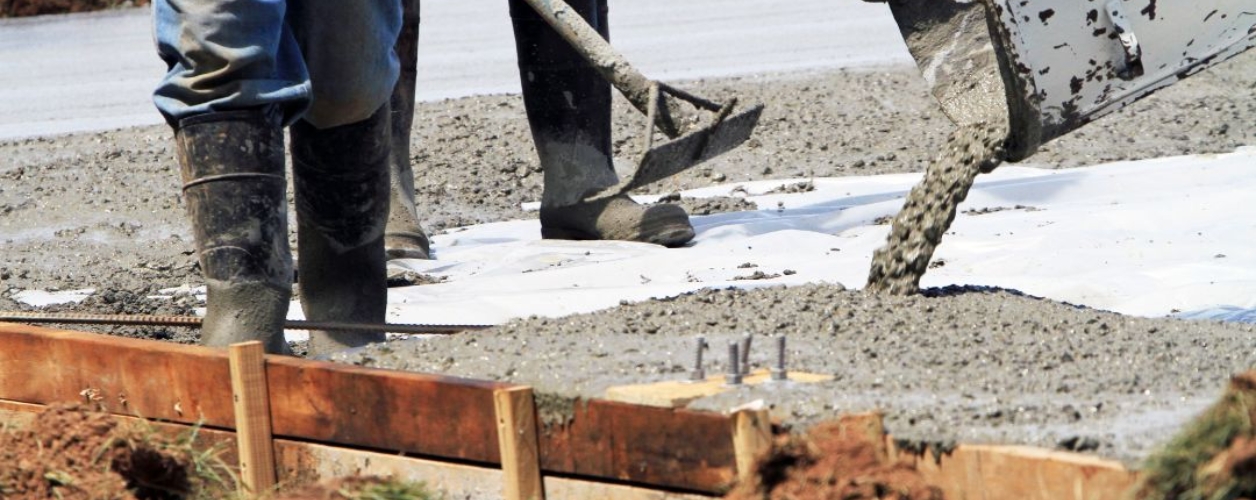
Maintenance Tips For Concrete Structures
If you want to extend the lifespan of concrete structures in Australia and reduce future concrete repair costs, properly maintain them. Concrete constructions are more durable and long-lasting with regular maintenance. You can use the following tips.
- Regularly inspect for cracks or damage (especially after harsh weather).
- Concrete surfaces should be cleaned regularly to avoid dirt and debris buildup, which can cause staining and deterioration over time.
- You can apply sealants or coatings to defend against moisture infiltration and freeze-thaw cycles.
- Avoid harsh chemicals or de-icing salts, which can harm concrete.
- You can prevent small problems from growing into more expensive fixes by promptly addressing them.
How To Hire A Professional For Concreting?
Small concrete jobs are easy to execute individually with the help of plenty of guides, tutorials, and online videos demonstrating the process.
When it comes to larger projects, you require more equipment and expertise. In that case, it’s necessary to hire professional concreters.
You should get quotes from at least 3 to 4 concreters to compare their costs and the level of services they offer. You can check ABN, service hours, ratings, reviews, and more to hire a professional for concreting. In addition, there are some important questions you should ask your concrete experts:
- Are you licensed?
- Do you currently have valid insurance coverage?
- Can you provide a written quote for my project?
- Do you have references from previous clients?
- Can you show examples of your work?
You can use the ServiceTasker platform, the best service marketplace in Australia for hiring verified tradespeople.
Some Tips For Cost-Effective Concrete Projects
- Plan your project properly to reduce waste and unnecessary expenses. You can make the best use of materials by checking layouts and measurements.
- You should choose a concrete mix that balances cost and performance. For specialised jobs like swimming pools, hiring dedicated Pool Concreters ensures the structure is waterproof and durable.
- You can invest in high-quality finishes and materials to increase longevity and reduce maintenance expenses. Engaging professional Exposed Aggregate Concreters can provide a durable and stylish finish.
- Experienced professionals, such as expert House Slab Concreters, can help you design and execute your project more effectively, ensuring a solid foundation at a low cost.
Conclusion
Understanding the cost factors and maintenance tips for concrete projects in Australia is essential for budgeting and sustainability. By hiring the right specialists, you can save money and ensure long-lasting concrete construction.
This principle of finding qualified professionals extends to all critical home projects. Whether you're looking for reliable Roofing Contractors for a new installation or experts in Roof Restoration to protect your investment, choosing the right team is key to a successful outcome.

![How Much Does Concreting Cost? [2025]](https://servicetasker.com.au/storage/2024/09/1726546093.jpg)
